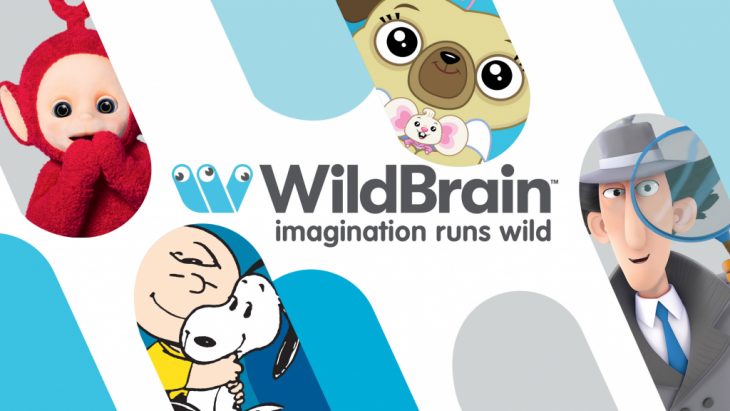
By Ahmad Hathout
WildBrain is alleging that Rogers is giving competing discretionary channels and the Disney+ streaming service preferential treatment over its own programming in the cable company’s TV guide, according to a heavily-redacted Part 1 application dated September but made public by the CRTC on Monday.
The application alleges that WildBrain’s Family Channel, Family Jr., WildBrain TV and Telemagino are being torpedoed by Rogers in favour of other “comparable discretionary television programming services with which the WildBrain Services are in direct competition,” which the Toronto-based company is alleging is “disrupting the children’s discretionary television market for children’s programming, particularly on the Rogers’ systems.”
WildBrain says in its complaint that it must compete directly against Corus’s three Disney-branded channels – Cartoon Network, Boomerang, and Nickelodeon – as well as foreign streamers, including Disney+. Now, it alleges it’s being hamstrung by how Rogers markets the channels.
WildBrain alleges that Rogers, for example, is giving “particular marketing emphasis” to Corus’s YTV and Treehouse, “which are now the only children’s services indicated as being offered through Rogers’ non-thematic packaging structure – other than the Disney+ Standard service, of course.”
On the latter, WildBrain alleges that “Rogers has engaged in a highly favourable distribution and marketing campaign to support the Disney+ service.” It notes that Disney+ is available on Rogers’s “Popular TV” and “Ultimate TV” bundles with internet, with an ad-supported (Disney+ Standard) option pitched to subscribers as coming at no additional cost.
“Providing Disney+ Standard service as, essentially, a ‘free’ service to subscribers advantages this service for marketing purposes with subscribers who perceive that they are receiving free content,” the complaint reads. “The additional marketing boost that the promotion provides to the Disney+ service is also advantageous in bringing the availability of the service and its content to the forefront in the mind of consumers and subscribers.”
WildBrain alleges that the marketing of Disney+ is superior to its own channels, which it says are relegated to the cable company’s theme packs that don’t “benefit from similar prominence or marketing exposure … and which require subscribers to opt for specific thematic programming, rather than the ‘all in’ larger bundled offers in which Disney+ Standard is offered.”
In a statement to Cartt, a Rogers spokesperson said, “We’re focused on meeting our customers’ changing viewing habits and providing Canadians with the content they want on their platform of choice. We will reply as part of the proceeding.”
Corus last year filed a complaint against Rogers alleging the cable giant is giving preference to Disney+ over its own Disney-themed channels by how it positions the former on the guide. Rogers argues the complaint is baseless because Corus’s channels are not comparable and Rogers doesn’t own Disney+, so it can’t give itself a preference. Rogers has also said the decline in viewership on children’s programming has significantly outpaced overall television viewership, as audiences have moved online. Meanwhile, WildBrain says April 2024 data from MTM Jr. show that 62 per cent of children watch linear television weekly and a third watch every day, showing that this type of viewership is important.
Outside of that complaint, Rogers and Corus are currently entangled in a carriage dispute. Rogers filed an application last month in the Federal Court of Appeal against a CRTC decision to force it to carry Corus channels that it – and an Ontario court opinion – says it has a right to remove for legitimate business purposes. The decision stands until the commission can make a decision on the matter or until the parties come to an agreement privately.
WildBrain points to a CRTC expectation in its approval of Rogers’s acquisition of Shaw – which made it the largest broadcaster in the country in April 2023 – that the cable giant “treat independent undertakings fairly and to avoid dropping channels, imposing punitive or retaliatory measures, imposing unreasonable rates, significantly changing packaging or otherwise materially reducing wholesale payments.”
WildBrain’s application is similar to one it made against Bell last summer, which alleged the broadcaster was giving preference to Corus’s content over the same WildBrain channels that are in dispute in this proceeding.
Earlier this month, Bell filed a complaint to the CRTC asking it to stop Rogers from bumping its newly rebranded services, USA Network and Oxygen True Crime, off their current channel numbers on Rogers TV. Bell had occupied those numbers when those services were called Discovery and Investigation Discovery, respectively. But after Rogers won the rights to the Warner Bros. Discovery rights this past summer, the cable company said it seeks to remove the rebrands because it wants to ensure that its subscribers can reliably go to the channels and see the American programming to which it now has the rights.
WildBrain’s application – and the legal and regulatory complaints related to channel moves and placements – came before the CRTC launched a consultation this month on the challenges in the market as it relates to the relationships between broadcasters, producers and foreign streamers, which a Corus executive called “long overdue” and “incredibly important.”
For WildBrain, it hopes the CRTC will “set out certain specific expectations for Rogers in its dealings with independent services.”
Correction: A previous version of this story said WildBrain is based in Halifax. It used to be, but moved to Toronto years ago.



